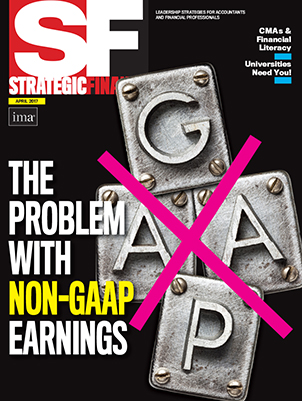SF: You came from humble beginnings with no formal business training and are now a self-made multimillionaire whose company has more than $6 billion to date in global product sales. What was your mind-set in the beginning of your career, and how did you maintain the motivation to keep reaching for your goals?
DJ: My mom always told me to think big. In fact, she had a huge can opener hanging in our kitchen that said, “Think Big!” There’s a problem with thinking big, though. You can get overwhelmed in your thoughts and end up with “analysis paralysis”—you end up thinking and thinking and thinking, but you don’t actually start anything. What helped me when I first started is that I was used to not having much and working with whatever I had. As a kid, I would assemble bicycles from spare parts that I found in my neighborhood; as a teenager, I would buy crashed cars and rebuild them piece by piece as I was able to save up money for parts. The mind-set is to think big but start small and knock down one goal at a time. After a while, you’ll get some momentum, gain confidence, learn to love what you’re doing (or not), and become unstoppable.
SF: Anyone who has achieved success has also experienced failures. Can you give an example of a failure that eventually led to your success?
DJ: I would say that all my failures contributed to my success. I’m the sum of all I’ve done—and I’ve done a lot of failing. Each failure either taught me what worked or didn’t, or what I wanted to do or didn’t. For example, I used to drive a livery cab. Although I started with one vehicle, I planned to own a big transportation company one day. After working long hours and paying traffic tickets, insurance, tolls, and fuel, I realized it wasn’t the business for me. I learned how overhead could easily devour your profit margin. That’s a lesson I took with me.
SF: You’ve said that some people set goals that are “self-destructive.” How can a goal be self-destructive, and how can people avoid setting these types of goals?
DJ: Everyone knows the old saying, “Stand for something, or you will fall for anything.” In terms of personal branding, it means define who you are and make a living by that one definition of your goals. Sometimes it helps if you give yourself a reputation to live up to. For example, I used to have a guy who worked for me who called himself “the facilitator.” It’s how he introduced himself. He wanted to be known as someone who could get things done. Be proactive. Describe yourself in two to five words—Nike: Just Do It; Apple: Think Different; and so on. Being proactive about defining yourself helps silence that negative, destructive voice in your head that says, “It’s too late to go back to school for that degree, get that promotion, learn that new skill, or start that company.”
SF: Is there something you do in your personal life that contributes to the success in your career?
DJ: Yes, I keep strong women in my inner circle who aren’t afraid to tell me the truth about myself. Sometimes the hardest part about being your own boss is the lack of people in your circle that can push you when you need it.
I believe there is power in being broke; likewise, there’s weakness is being rich. It isn’t as easy to stay hungry when your belly is full. Case in point, once I experienced massive financial success, I got off track for a time. I was hanging out at all the hot L.A. and Miami parties, going to the Grammys, and all sorts of things of that nature. It was the women close to me who reminded me that, with all my success, I had a responsibility to pay it forward. That’s when I started doing more interviews and public speaking; I figured that one good way to pay it forward was to share some of the lessons I learned along my journey so I could try to shorten the learning curve for others.
SF: What was the best career advice you’ve ever received?
DJ: From my mom: “What’s under your hood is as good as anyone else’s.” Being dyslexic, I knew I learned things differently than others, but my mom never let me feel like “different” meant “less than” or stupid. With mom’s encouragement, I just learned to get things done my own way. Like I alluded to before, sometimes your perceived weaknesses are actually strengths.
SF: What advice would you give to someone who is working toward a goal?
DJ: What you learn along the way is what’s most important. As you work on your goals, they work on you. It’s along your journey that you learn your strengths and weaknesses as well as how to survive failures, develop your skill set, and build relationships.
SEE YOU IN DENVER!
To hear more about Daymond John’s strategies about goal setting and achieving success, head to Denver for IMA’s 2017 Annual Conference & Expo, June 17-21. For information, visit www.imaconference.org.
Other keynote speakers at ACE2017 include:
Tony Byers, Director, Global Diversity & Inclusion, Starbucks
Terry Jones, Founder, Travelocity.com, and Founding Chairman, Kayak.com
Laurie Brlas, CMA, CPA, former Executive VP and CFO, Newmont Mining Corporation
Bob Kolodgy, Executive VP and CFO, Blue Cross Blue Shield Association (BCBSA)
Marc Siegel, Board Member, Financial Accounting Standards Board (FASB)
Patrick Stroh, CMA, President, Mercury Business Advisors, Inc.
Beth Ziesenis, speaker, author, nerd, Nerdy Best Friend
8 SPECIALTY TRACKS AT ACE2017
As a new feature to the Annual Conference & Expo this year, IMA® (Institute of Management Accountants) is offering eight specialty tracks designed to help attendees customize their learning experience. The lineup includes job- and CMA-relevant content:
- Governance, Risk Management, and Internal Controls;
- Small Business and M&A;
- Financial Close and Reporting;
- Planning, Budgeting, and Forecasting;
- Ethics;
- Technology;
- Leadership and Professional Development; and
- Accounting Hot Topics.
Attendees can choose to focus on one area of expertise or mix and match to fit their specific career needs.
These specialty tracks were developed with the practitioner in mind. While the old tracks served many educational needs, IMA felt the new tracks could be more relatable to practitioners in attendance and any employers who sponsored them. The tracks were developed by a special task force using the Greenfield approach to identify management accounting content in practical, day-to-day terms.
Much of the Conference content was then aligned with the CMA® (Certified Management Accountant) certification. Attendees can expect to gain career resources and networking contacts, and, for those interested, to better prepare for the CMA exam.

April 2017




